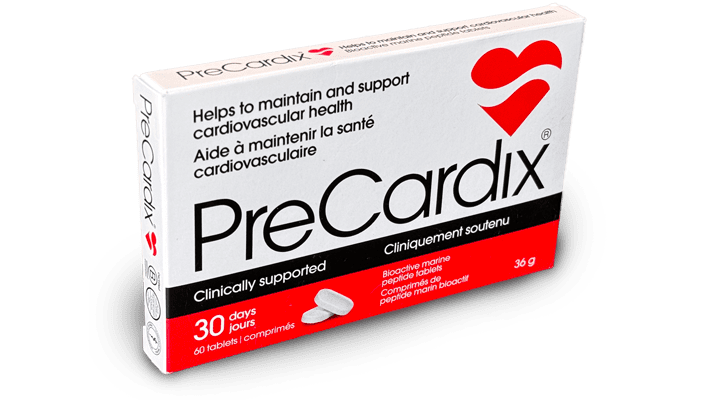High Blood Pressure Prevention and Management | Systolic and Diastolic Blood Pressure | Diet | Stress Management | Healthy Lifestyle
As we get older, our blood pressure will naturally begin to rise. High blood pressure—also called hypertension—can lead to a number of life-threatening conditions. According to Johns Hopkins Medicine, your lifetime risk of developing high blood pressure is a remarkable 90%, even if you still don’t have it by age 55 to 65. But despite this disheartening statistic, there are things you can do to reduce your risk of developing high blood pressure or to manage the condition and minimize the chances of adverse effects.
Blood pressure: know your basics
Your heart’s primary purpose is to pump oxygenated blood all through your body to provide the energy that you need. When you measure blood pressure, what you’re actually measuring is the amount of force that your blood exerts against the inner walls of your arteries when moving through your body. It is normal for your blood pressure to fluctuate throughout your day, depending on the food you eat or the activities you are participating in. It falls when you’re relaxing or sleeping, rises when you wake up in the morning, and can rise more significantly when you feel stress or excitement or as a result of exercise and physical exertion.
It’s important to monitor your resting blood pressure. If your resting blood pressure rises too high, it can damage your arteries and significantly increase your risk of developing serious health issues.
In fact, high blood pressure is known to contribute to:
- Atherosclerosis (hardening of the arteries)
- Stroke
- Heart attack
- Kidney disease
- Loss of vision
- Circulation problems, such as peripheral artery disease
- Dementia
- Weakened bones
- Erectile dysfunction
When untreated, high blood pressure can even lead to heart failure and death. That’s why it’s important to know your blood pressure “numbers”, watch for significant swings in your average, and consult a doctor as you age.
When a doctor tests your blood pressure, you’ll be given the reading in two numbers, one over the other. The number on top is your systolic blood pressure (SBP), and the number on the bottom is your diastolic blood pressure (DBP).
SBP is the maximum pressure exerted when your heart beats, whereas DBP is the level of pressure in your arteries between heartbeats. Typically, a person’s SBP reading rises as they age, and their DBP rises until they reach the age of 50 and then begins to decline.
An SBP reading below 120 with a DBP reading below 80 is considered healthy. A rising SBP reading can be an indication that a buildup of plaque may be causing the arteries to become stiff. A rising DBP reading can mean that you have already developed high blood pressure or are at risk.
Aging and blood pressure
Our blood pressure increases as we age due to structural changes in our arteries. These changes are often associated with a combination of complex factors related to our lifestyle and environment.
A variety of factors can contribute to your risk of developing high blood pressure as you age, including:
- Smoking
- A sedentary lifestyle with insufficient exercise
- A poor diet that is low in fibre
- Too much salt in the diet
- Drinking alcohol in excessive amounts
- Chronic stress
- Obesity or being overweight
- Sleep apnea
- Genetics and family history
- Decreased kidney function
- Thyroid and adrenal disorders
- Diabetes
- Pollution
Interesting to note, people who live in rural areas that are secluded from the heavy pollution of cities tend to have a lower incidence of high blood pressure. In these areas, there is often a strong sense of community, which can lead to lower stress levels, and this may also be a factor.
Prevent or Manage High Blood Pressure
High blood pressure risk increases with age, but it’s not inevitable or untreatable, says Samuel Durso, M.D. from Johns Hopkins. Aim to prevent it or keep it from worsening. Start with one or two of the following lifestyle changes and build from there.
Improve Your Diet
Eat more fruits and vegetables high in fiber. Include potassium, magnesium, and calcium-rich foods like dried beans, yogurt, and milk. Limit salt to avoid water retention and high blood pressure.
Start an Exercise Routine; Lose a Little Weight
Regular physical activity reduces blood pressure by keeping arteries flexible. Options include walking, gardening, jogging, and swimming. Losing even a small amount of weight can significantly improve your blood pressure.
Cut Down on Alcohol
Moderate your alcohol intake to avoid contributing to high blood pressure and other health issues.
Quit Smoking
Quitting smoking greatly benefits your heart and arterial health. Seek your doctor’s advice for quitting methods.
Manage Stress
Use stress management techniques like breathing exercises, meditation, and journaling to control stress hormones and maintain healthy blood pressure levels.
Regular Monitoring
Since high blood pressure often shows no symptoms, regular check-ups are vital for early detection and control. A healthy lifestyle can prevent high blood pressure or help manage it if you already have the condition, avoiding its harmful impacts.
Important Information
Always consult with your healthcare provider before making changes to your blood pressure management plan. PreCardix® does not treat, cure, or prevent medical conditions. Measure and monitor blood pressure regularly. Know the signs of heart attack and stroke.
Do not take PreCardix® if you are pregnant, breastfeeding, have renal artery stenosis, have a history of angioneurotic edema, or have a shellfish allergy. Consult product guidelines for additional information. Print and share the product monograph with your healthcare provider.
PreCardix® is an innovation of Marealis Inc. a Norwegian Bio-Tech company dedicated to finding natural, sustainable, and effective marine-based solutions for blood pressure health, globally. Designed in Norway. Manufactured in North America.









